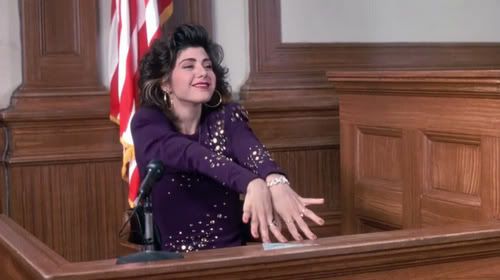No offense to any car mechanics out there, but the 1993 Advisory Committee Notes to Fed. R. Civ. P.26 specifically state, “Rule 26(a)(2)(B) does not preclude counsel from providing assistance to experts in preparing the reports, and indeed, with experts such as automobile mechanics, this assistance may be needed.”

It would be interesting to see how Marisa Tomei, with her thick Jersey accent in My Cousin Vinny, would respond to that. The truth is, many experts well beyond the auto industry need guidance to prepare reports that coherently capture their opinions and meet the requirements of Rule 26. While the Rule clearly contemplates and condones some degree of “assistance,” it also clearly states that it is the expert, not the lawyer, who must actually “prepare” the report and that the report should reflect the “testimony to be given by the witness.” This begs the question--how much is too much?
“Review and Sign” Crosses the Line
“A highly qualified puppet” was the term the court called an expert in a recent Pennsylvania case in which the court discovered that the expert’s 64-page report was written entirely by defense counsel with the intent that he merely “review and sign.” See Numatics v. Balluff, 13-cv-11049 (E.D.Michigan) (Dec. 16, 2014). Although this example may seem extreme, several other courts have uncovered similar attempts by counsel to draft an expert’s report for review and approval and have excluded the expert’s opinion as a result. See Whole Women’s Health, et al. v. David Lakey, M.D., et al., 2014 U.S. Dist. LEXIS 124500, at *7–8 (W.D. Tex. 2014) (finding expert’s reliance on report drafted by litigation consultant undermined his credibility); Planned Parenthood Southeast, Inc. et al. v. Luther Strange, et al., 33 F. Supp. 3d 1381, 8–14 (M.D. Ala. 2014) (finding counsel and consultant reached “beyond the typical involvement in helping an expert put his opinions into words”).
What is the lesson here? Car mechanic or hedge fund consultant with a juris doctor degree, it is the expert, not the lawyer, who should author the report. While counsel may provide guidance on legal requirements of the report—scope and clarity—the lawyer should not assume the expert’s role in preparing the report. The fact that draft reports are protected from discovery does not protect inquiry into which sections of the report, if any, were prepared by counsel and which were prepared by the expert. The Rule is clear on who should “prepare” the report. It is the expert who must put pen to paper and the lawyer who may only “assist.”
Their Words, Not Yours
Comes now a lawyer herewith a 63-page report. According to the expert in Numatics, had he written the report, it would have been only five pages after he had taken all of the “legalness” out of it. The Committee Notes to the Rule clearly state that the report must set forth what the witness is “expected to present during direct examination,” meaning that the report needs to reflect the witness’s own thoughts, conclusions, and verbiage. Unless you expect your expert to spout back, essentially verbatim, the claims or defenses in your pleadings, his or her report should not read that way. Rather, it should be a summary, in the expert’s own words, of his or her anticipated direct examination. If the expert prepares the report, such will occur naturally, and the lawyer can then assist to ensure that the report is clear and effective and that it meets the legal requirements of the Rule. Also be sure to review your expert’s invoices to ensure that he or she is effectively documenting time spent preparing and revising the report as this may be scrutinized by the court or opposing counsel. While attorney involvement is permitted and expected, well-documented preparation and revision of the report by the expert ensures cataloged compliance with Rule 26 and no questionable ethical actions by counsel. In addition, requiring your expert to prepare an effective, well-crafted report, merely with your assistance, will only further prepare him or her to give effective, well-crafted testimony at trial. The right expert will know what to say, both in the report and on the stand. Marisa Tomei stands as a perfect example—it is often the expert’s own words that have far more impact on the jury than our “legalness.”



 />i
/>i

